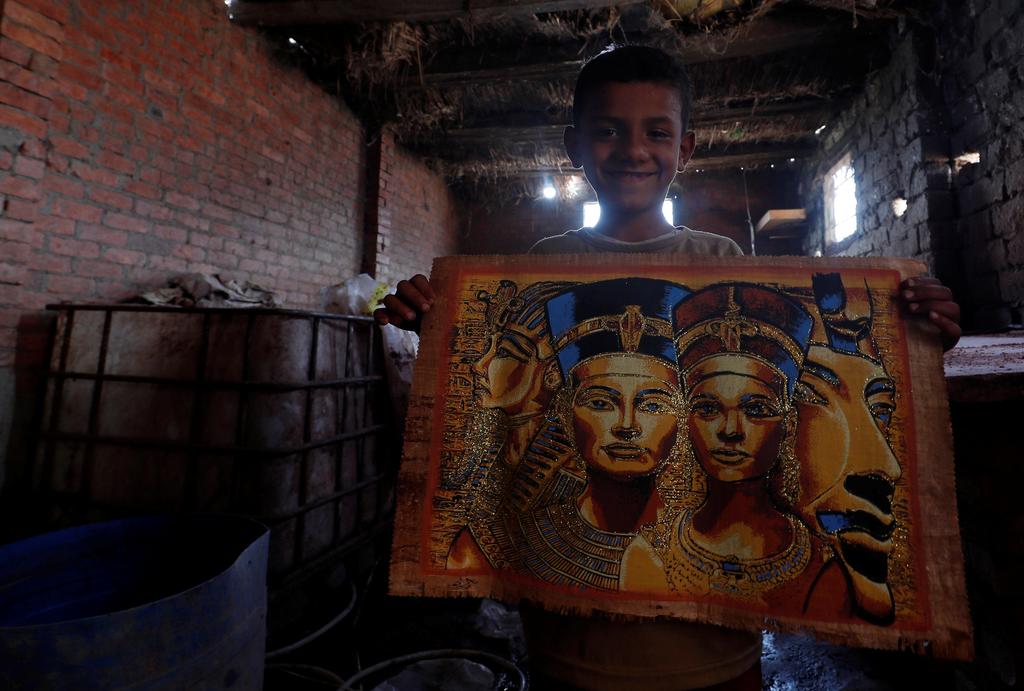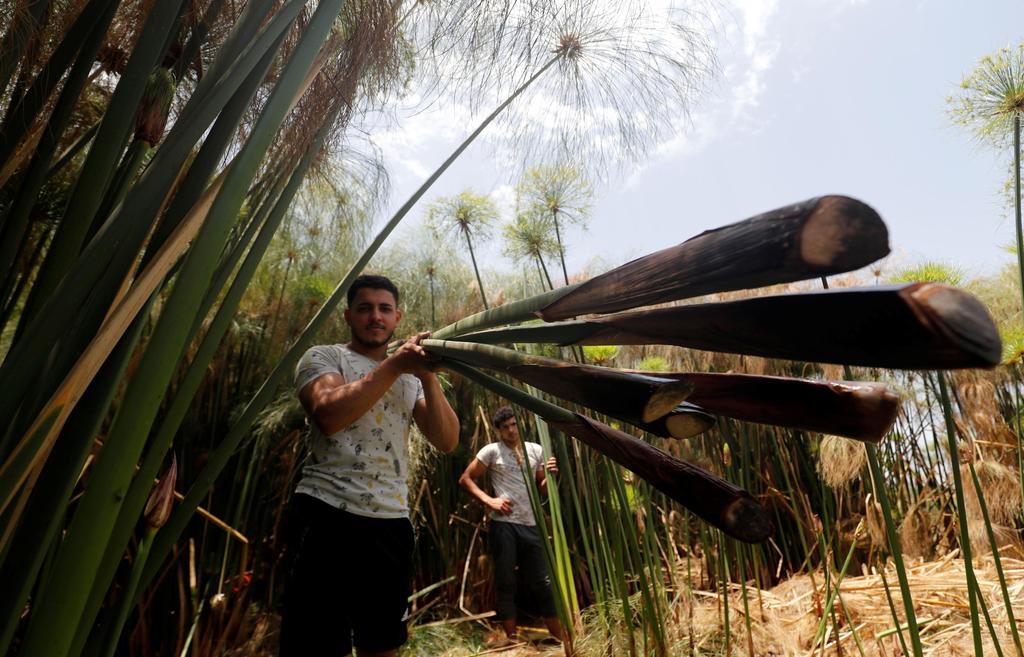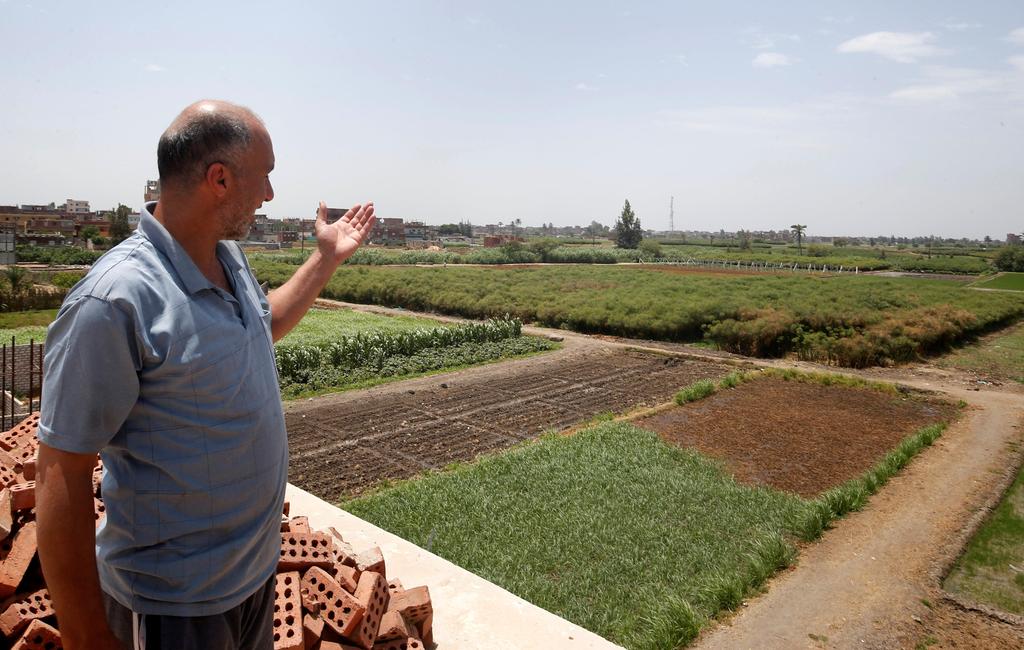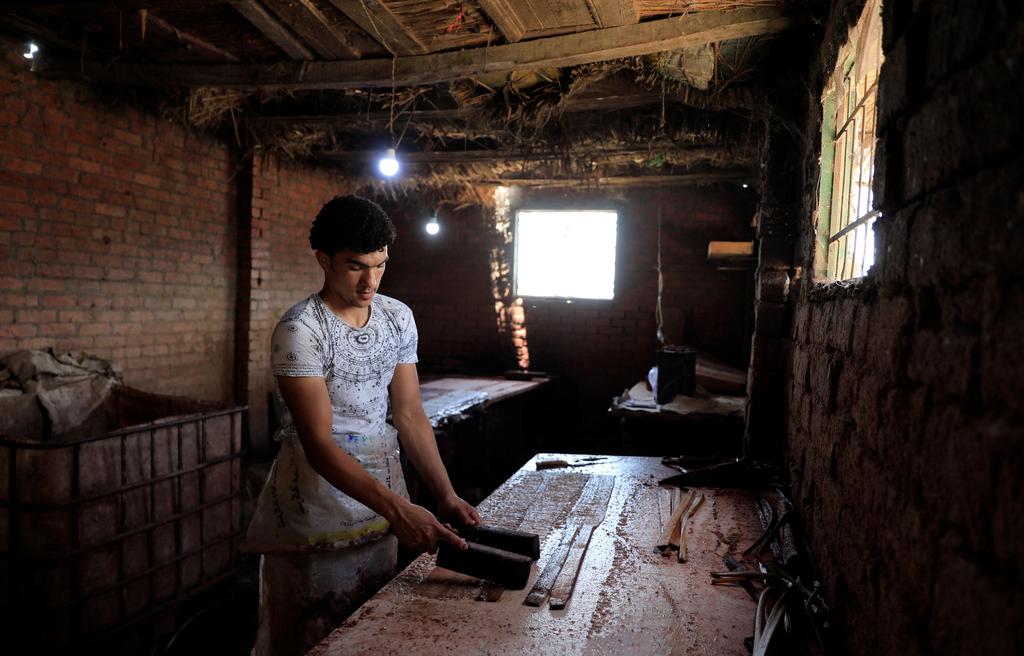A village keeping the ancient Egyptian craft of papyrus-making alive has seen demand for the paper collapse after the novel coronavirus pandemic brought Egypt’s foreign tourism sector to a near standstill.
Papyrus, used as a writing surface by the ancient Egyptians, is the main livelihood for residents of the Nile Delta village of Al-Qaramous.
4 View gallery


Sayed Abdul Rahman, 9, son of a papyrus farmlands and workshops owner holds drawing on papyrus plant at a workshop in Al-Qaramous village
(Photo: Reuters)
“If there is tourism, there is a price for the papyrus,” said Abdul Rahman Mostafa, a 47-year-old farmland and papyrus workshop owner. “Because there is no tourism, we have to stop producing.”
The paper is made by cutting strips from the stalk of the papyrus plant, pressing them together, and drying them to form a smooth, flat sheet.
4 View gallery


Mohamed Reda, 23, carries papyrus plants at a farm in Al-Qaramous village
(Photo: Reuters)
- Many of the residents of Al-Qaramous, about 80km (50 miles) northeast of Cairo, are involved in farming, processing, and decorating papyrus with Ancient Egyptian hieroglyphs or images of pharaohs before it is sold in tourist spots on the Red Sea or in Cairo.
4 View gallery


Abdul Rahman Mostafa, 48, owner of papyrus farmlands and workshops looks at his agricultural land in Al-Qaramous village
(Photo: Reuters)
“The selling price of paper is less than the cost of making it,” said Wagdy Mohamed, a 33-year-old owner of a workshop where papyrus sheets are decorated.
“If this goes on, the product will disappear completely. We pray to God that things get better, and we look forward to next season,” he said.
4 View gallery


Mohamed Abdul Rahman, 18, son of a papyrus farmlands and workshops owner compresses sliced papyrus plant at a workshop in Al-Qaramous village
(Photo: Reuters)
Egypt has confirmed about 50,000 cases of the new coronavirus and the number of reported cases has continued to rise in recent weeks as the government eased restrictions on movement and allowed some hotels to reopen at limited capacity.
International flights to the main Red Sea tourist resorts are due to restart on July 1.

